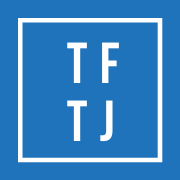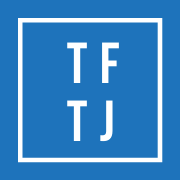Cybersecurity Deep Dive
Bonjour, and welcome to a special two-part edition of The French Tech Newsletter.
🥷🛡️ Cyber Royalty Lands in Monaco. This week, the global cybersecurity elite descended on Monaco for Les Assises de la Cybersécurité.
Les Assises (Oct 8-11) is the premier gathering where CISOs, intelligence agencies, and security innovators are shaping the future of cyber defense. It reunites the gotha of the global infosec community: CISOs, state agencies, startups, and the big guns from Thales to Palo Alto Networks. Now in its 25th edition, the event has become the annual rendez-vous for high-stakes networking, threat intel gossip, and unveiling the next wave of defensive innovation.
This felt like a good opportunity to take stock of France's ambitions in this sector. Over the past few years, the government has tried to stake its claim, pumping billions of euros into cybersecurity both to shore up defenses but also hoping to churn out at least three unicorns (only 2 so far).
There have been some bright spots. Just this week, Filigran raised €50M, the largest cybersecurity round ever in France. Alas, it's one of just 6 cybersecurity deals so far in France this year.
But cybersecurity isn't just about startups. And the stakes have never been higher. From AI-powered attacks to supply chain vulnerabilities to the weaponization of digital infrastructure, cybersecurity has evolved from an IT concern to a matter of national security and economic competitiveness.
We're going to break all of this down over two special editions today and Monday in the La Machine newsletter.
Inside this today's edition:
👀 France is betting over €1 billion to become a cybersecurity powerhouse. This in-depth Sector Deep Dive maps the nation’s integrated ecosystem—government, defense, ANSSI, startups, research, and corporate giants—driving its push for digital independence and global leadership.
👀 A sweeping new study by Cybervadis and CESIN of 1,000 firms finds most have solid policies but weak proof. As Europe's cybersecurity regulation NIS2 expands oversight to thousands more companies, the gap between compliance on paper and verifiable protection is now a national competitiveness issue. Cybervadis' Thibault Lapedagne breaks it down.
In Part 2 on Monday, we'll look at a promising cybersecurity startup and have a special conversation.
Chris O'Brien + Helen O'Reilly-Durand
Tech Talk
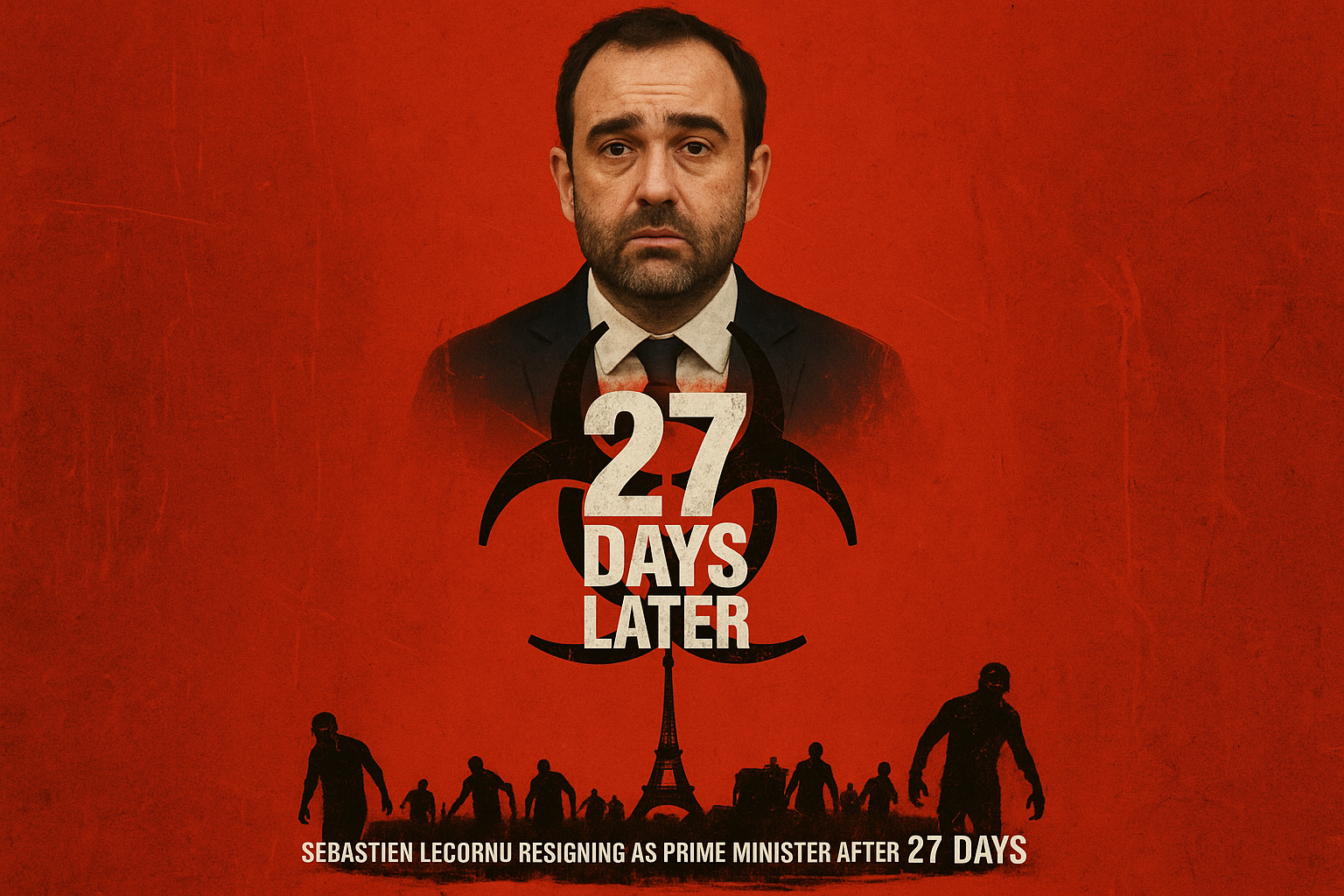
😰 🇫🇷 French Tech in Political Freefall. You thought startup fundraising was tough? Try running a business in the middle of France’s latest political meltdown. The surprise resignation of Sébastien Lecornu came just barely 14 hours after forming his government. And it has left the French Tech ecosystem in collective despair. In a gloom-o-rama published in Maddyness, entrepreneurs from Fleet, Mistertemp’, and VCs at OneRagtime all sounded the alarm: the constant political chaos is “killing confidence,” stalling hiring, and pushing some founders to consider heading abroad. Even France Digitale’s Maya Noël joined the chorus calling for “stability and clarity,” which apparently are the real unicorns now in Paris these days. Yet, a defiant optimism persists: “Laissez-nous entreprendre,” says OneRagtime's Stéphanie Hospital ("let us build, innovate, and move forward, politics be damned.) | Maddyness
🎖️⚛️ Quantum computing startup Alice & Bob is celebrating a Nobel moment: two of its close collaborators, Michel H. Devoret and John M. Martinis, have been awarded the 2025 Nobel Prize in Physics alongside John Clarke for their groundbreaking work on superconducting qubits. Their discoveries in macroscopic quantum tunnelling and energy quantisation in electric circuits paved the way for today’s quantum computers — including Alice & Bob’s signature cat qubit technology. Devoret, who co-invented the cat qubit, helped shape Alice & Bob’s early scientific direction, while Martinis continues to advise the company’s board. Co-founder Raphaël Lescanne hailed the award as a milestone for quantum science “becoming a true computing innovation.” With operations in Paris and Boston and over €130m raised, Alice & Bob aims to build the first fault-tolerant universal quantum computer, now with Nobel-winning science at its core. | Maddyness
🌌🪦 Once hailed as the embodiment of France’s New Space ambitions, Dark has gone dark. Founded in 2021 by ex-MBDA engineers Guillaume Orvain and Clyde Laheyne, the startup dreamed of becoming the “GIGN of space,” developing robotic systems to intercept and dismantle orbital debris. Backed by over €10 million in funding and supported by CNES, Dark symbolized a new industrial maturity - until it collapsed in 2025, undone by France’s lack of long-term state contracts and coherent space doctrine. Its demise exposes the fault lines of a fragmented ecosystem where startups oscillate between civil, military, and private interests without firm institutional backing. Dark’s fall is less a failure of vision than a symptom of a nation still searching for its place in the orbital race. | FrenchWeb
📗👀 Upcoming Book: The Rise and Fall of The Family. A new book retraces the extraordinary saga of The Family, the influential Paris-based startup accelerator founded in 2013 by Alice Zagury, Oussama Ammar, and Nicolas Colin. Pioneering a new model in France that blended incubation, acceleration, and investor access, The Family quickly became a central force in the country’s tech renaissance - nurturing hundreds of startups and shaping the mindset of a new generation of entrepreneurs. But the venture’s story took a dramatic turn. Once bound by a near-familial relationship, the founders’ alliance unraveled amid accusations of deception and betrayal, particularly surrounding Oussama Ammar, who was later accused of misappropriating company funds. The resulting fallout led to internal splits, lawsuits, and a public reckoning that shook France’s startup scene. The book offers both a historical narrative and a sociological reflection on France’s transition into the digital economy - capturing how ambition, innovation, and ego collided in one of the most emblematic stories of French Tech’s rise and disillusionment. The book is co-written by Jean-Jacques Augier, a French businessman and publisher who has served as an administrator of several companies, including The Family (Holdings) since October 2021; and Michel Wieviorka, a prominent sociologist and Director of Studies at the École des hautes études en sciences sociales (EHESS), known for his extensive work on social movements, violence, and contemporary society.
🚗💰 After 13 years scaling Uber into a global giant, Pierre-Dimitri Gore-Coty is swapping the driver’s seat for the investor’s chair — joining Plural as a full-time partner and opening the firm’s first Paris office. Founded by startup heavyweights like Taavet Hinrikus (Wise) and Ian Hogarth (Songkick), Plural has quickly raised €750m to back bold European founders in deeptech, defence, and fusion energy. Gore-Coty, who led Uber Eats’ explosive growth during the pandemic, says too many VCs “have never actually run businesses” — a gap Plural aims to fill with real operating experience. He plans to focus on operations-heavy startups and help them scale globally, bringing Silicon Valley-style ambition to Europe’s tech scene. “The flywheel is already spinning,” he says. “Europe’s founders are ready to build global champions — they just need the right partners.” | Les Echos, Sifted
🕺👗Paris-based luxury resale platform Vestiaire Collective has appointed Bernard Osta as its new Chief Executive Officer, marking a new chapter for one of France’s most prominent circular fashion success stories. Osta, who joined the company in 2021 and most recently served as CFO, succeeds Max Bittner, who led the company’s expansion over the past seven years. A former Goldman Sachs executive and HEC Paris graduate, Osta brings deep strategic and financial expertise to the helm of the fast-growing fashion tech scale-up. Under his leadership, Vestiaire plans to accelerate its AI-driven roadmap, strengthen global operations across Europe, the US, and APAC, and double down on authentication excellence—a cornerstone of consumer trust in the pre-loved luxury market. The company, valued at over $1 billion and backed by investors including Kering, has positioned itself as a sustainability pioneer in fashion’s resale revolution. Osta in LinkedIn called the appointment “a true honor and big responsibility,” signaling continued ambition to scale Vestiaire’s impact in the booming secondhand luxury economy. | LinkedIn
💰📈 French fintech unicorn Qonto is shaking up Europe’s private markets with plans for major secondary share sales, CEO Alexandre Prot confirmed at the Sifted Summit. The move will let employees and early investors cash out, as IPO windows stay frozen across the continent. Profitable for two years and boasting €449m in 2024 revenue and €144m in net profit, the Paris-based SME banking platform has little need for new funding. Instead, it’s following the lead of fintech giant Stripe by creating private liquidity events rather than rushing toward a public listing. “We don’t care too much whether we scale as a public or private company,” Prot said — a confident statement from one of France’s most valuable startups, now worth an estimated €5bn. | Sifted
👩⚕️💸 Paris– and San Francisco–based Lauxera Capital Partners has smashed past the €400m mark for its second Healthtech growth fund, Lauxera Growth II — hitting its target in record time. The fund aims to propel Europe’s most promising healthtech scaleups into global leaders with an unusually hands-on approach, helping them navigate U.S. regulations and scale internationally. Founded in 2020 by a trio blending medical, industrial, and investment expertise, Lauxera is building transatlantic bridges to accelerate growth in AI-powered diagnostics, smart medical devices, and digital health platforms. Its latest fund has already invested in Germany’s Acandis, which develops neurovascular devices, and Sweden’s Antaros Medical, an AI-driven imaging firm. With investor confidence high despite tough market conditions, Lauxera is positioning itself as Europe’s go-to growth engine for next-generation healthcare innovation. | TechFundingNews, Maddyness
Want to reach an audience of more than 30,000 readers each month? The French Tech Journal is the leading English-language media platform covering France's dynamic tech ecosystem. With 31,000 + engaged readers across key global markets and consistently high engagement rates, our sponsorships provide unparalleled access to decision-makers in French tech.
Sector Deep Dive:
Inside France’s Ambitious Cybersecurity Sovereignty Strategy
Inside France’s Ambitious Cybersecurity Sovereignty Strategy

France wants to be recognized as one of Europe's leading cybersecurity nations, establishing a comprehensive ecosystem that combines strong government policy, robust academic research, innovative startups, and major corporate players.
With a market valued at approximately €7.3 billion and growing at 10% annually, France's cybersecurity sector represents a strategic national priority that extends far beyond commercial interests into the realm of digital sovereignty.
This Sector Deep Deep breaks down the key components of France's Cybersecurity Ecosystem:
- Government Policy and Funding
- Defense Agencies and Military Cybersecurity
- ANSSI: France's Cybersecurity Anchor
- Role of Bpifrance
- Corporate Players
- Venture Capital
- Cybersecurity Startups
- Private Institutes and Research Centers
- Cybersecurity Campuses and Accelerators
- Conclusion
French Companies Struggle with Cybersecurity Reality Check

As Europe's cybersecurity leaders gathered at the Monaco summit this week, a sobering new report reveals a troubling gap between what French companies say they're doing to protect themselves from cyber threats and what they can actually prove.
The study, produced by French cybersecurity assessment firm Cybervadis in partnership with CESIN, France's leading cybersecurity professionals association, analyzed over 1,000 French companies and found that while many have the right policies on paper, implementation remains patchy at best.
"What we bring to the market, the new thing we are doing, is that we perform evidence-based assessment at scale," said Thibault Lapedagne, who leads Cybervadis's 40-person analytics team and helped design the company's assessment framework.
Unlike traditional security ratings that rely on external scanning, Cybervadis requires companies to back up their claims with documentary proof—screenshots of configurations, log extracts, and other concrete evidence that security measures are actually working.
The timing is critical. The European Union's NIS2 directive, which dramatically expands cybersecurity requirements to thousands of previously unregulated companies, is already in force at the European level. Though, implementation has been slower than hoped in France due to government instability.
💸 Top Funding Deals 💸

📇 Company: Filigran
🔍 Description: French cybersecurity scale-up pioneering Extended Threat Management (XTM)—a unified, open-source and AI-native suite helping organizations operationalize threat intelligence and transform cybersecurity operations. Its products (OpenCTI, OpenBAS, and upcoming OpenGRC) enable teams to detect, assess, and respond to threats faster using agentic AI and community-driven intelligence.
💻 Website: https://filigran.io
📍 HQ City: Paris
🧗 Round: Series C
💰 Amount Raised: $58M
🏦 Investors: Eurazeo, Insight Partners, Accel, Deutsche Telekom (T.Capital)
👨💼👩💼 Founders: Samuel Hassine (CEO, ex-ANSSI), Julien Simon (CTO)
🗞️ News: Funding will accelerate Filigran’s expansion in the U.S., DACH, Saudi Arabia, and Japan; scale its agentic AI platform XTM One and launch OpenGRC, a dynamic threat-informed cyber risk management tool.
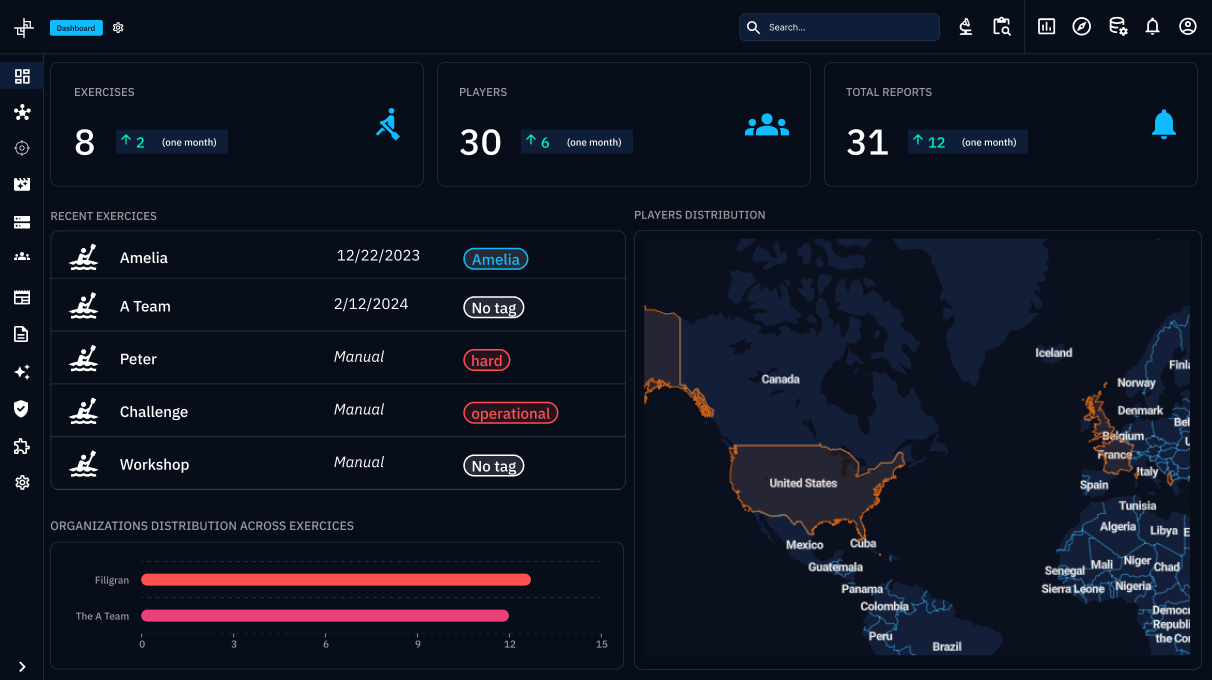

📇 Company: Phagos
🔍 Description: French biotech pioneering phage-based therapeutics as a natural, AI-enhanced alternative to antibiotics. Phagos develops bacteriophage drugs to combat bacterial infections in veterinary medicine and has obtained the first EU authorization to market personalized phage-based treatments. Its discovery platform combines advanced microbiology with artificial intelligence to identify, design, and optimize phages for therapeutic use.
💻 Website: https://www.phagos.com
📍 HQ City: Paris
🧗 Round: Series A
💰 Amount Raised: €25M
🏦 Investors: CapAgro, Hoxton Ventures, CapHorn, Demeter (co-leads); Acurio Ventures, Citizen Capital, Entrepreneur First, Founders Capital, Station F
👨💼👩💼 Founders: Alexandros Pantalis, Adèle James
🗞️ News: The funds will enable Phagos to deploy its veterinary phage treatments in the field, develop next-generation AI technology for phage discovery, and expand internationally. | AgFunderNews
📇 Company: Diffusely (ex-Meero)
🔍 Description: AI-powered SaaS platform enabling enterprises to generate and optimize large-scale visual content. Originally known as Meero, the company pivoted from a global photography marketplace to an AI software provider serving industries such as fashion and automotive with solutions like CarCutter and AutoRetouch.
💻 Website: https://www.diffusely.com/
📍 HQ City: Paris
🧗 Round: Growth round
💰 Amount Raised: €11M
🏦 Investors: Alven, Eurazeo, Prime Ventures, 50 Partners
👨💼👩💼 Founders: Guillaume Lestrade, Thomas Rebaud; current CEO Gaétan Rougevin-Baville
🗞️ News: Following its 2022 pivot from Meero to Diffusely, the company now reports €12M in ARR and 1,500 clients. This new round supports growth in its visual AI verticals and aims for profitability by 2026. | FrenchWeb
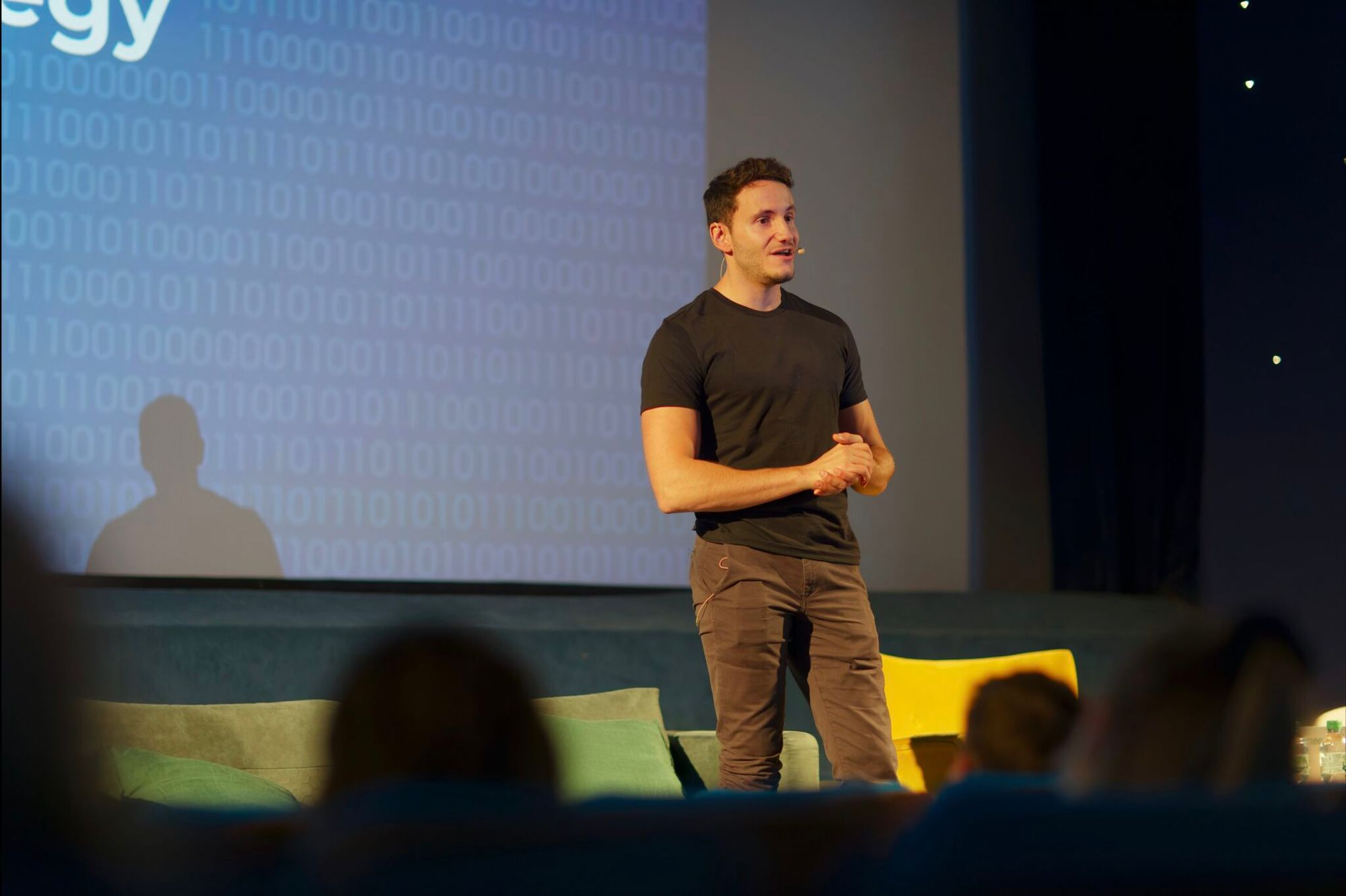
👋🏻 If you’re enjoying The French Tech Journal, support the project by forwarding it to friends and sharing it on your social networks. You can also comment on this post. And if you have ideas for stories, tips, or just want to harass us, shoot us an email: [email protected] / [email protected] 👋🏻


